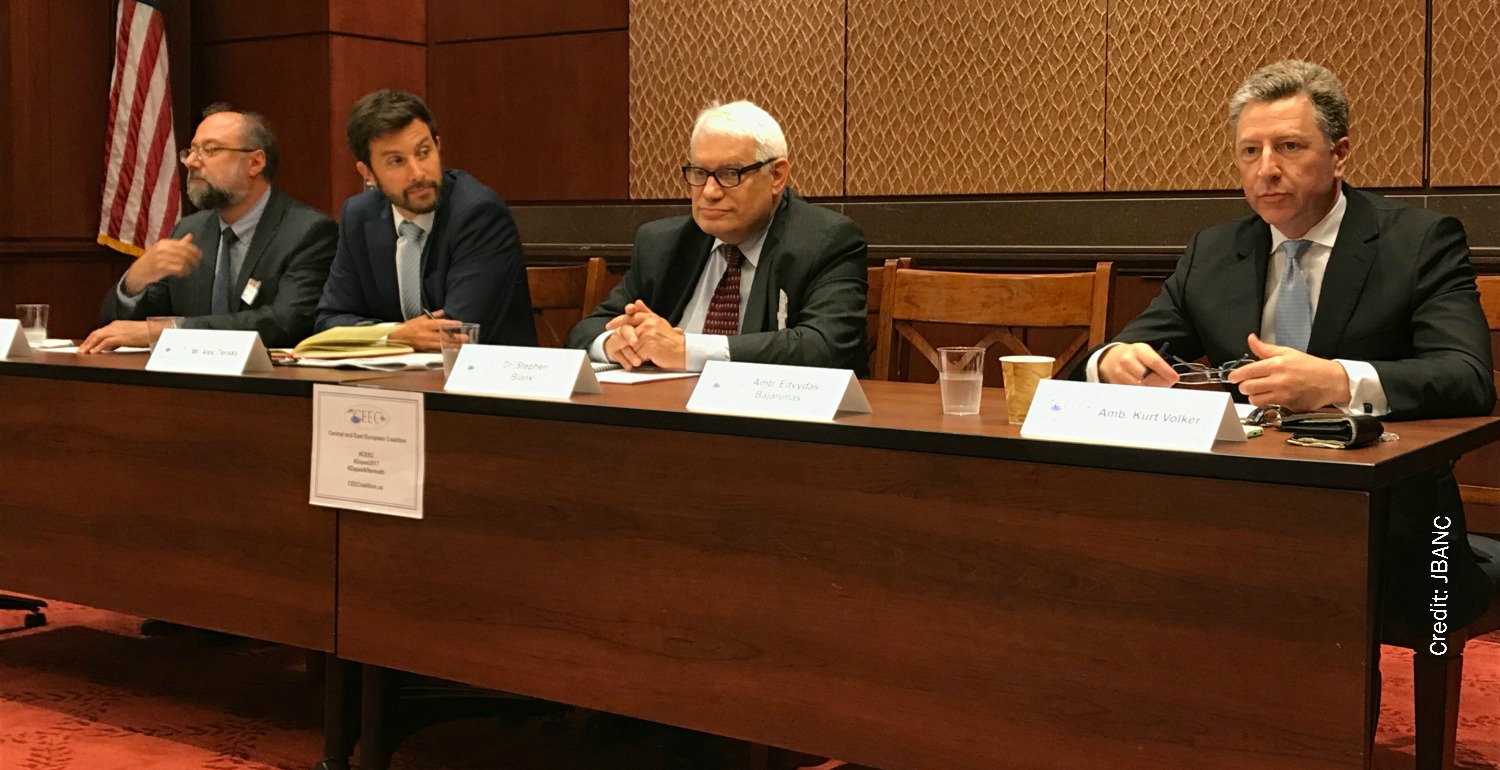On September 27, 2017, Helsinki Commission Global Security and Political-Military Affairs Advisor Alex Tiersky joined Ambassador Kurt Volker, Dr. Stephen Blank, and Ambassador Eitvydas Bajarunas at a public seminar to discuss the execution, outcomes and aftermath of Russia’s large-scale ZAPAD 2017 military exercise. Hosted by the Central and East European Coalition, Russia on NATO’s Doorstep: The West’s Response to the Kremlin’s Wargames was moderated by Dr. Mamuka Tsereteli.
During the discussion, Tiersky shared his experience as one of only two American officials who was invited by the Belarusian government (who partnered with Russia for the joint military exercise) to be present for the conclusion of ZAPAD 2017.
Tiersky commended the Belarusian government for offering the Distinguished Visitors program that he participated in along with representatives of the OSCE, the Red Cross and NATO, as well as defense attachés from various countries. The program included an extensive briefing on the aims, parameters, and intent behind the exercise, as well as an opportunity to witness an impressive live-fire demonstration at the Borisov training ground. Belarusian briefers underlined that the aim of the program was to offer as much transparency as possible; the exercise was purely defensive in nature and neighboring countries had nothing to fear, Tiersky was told.
However, Tiersky added, the program offered by Belarusian authorities – while commendable – fell short of fulfilling the spirit of commitments to military transparency under the Vienna Document, which would have provided a greater opportunity for evaluating the exercise’s scale and scope through broader participation by OSCE participating states and more intrusive inspection measures. While impressive and worthwhile, the distinguished visitors program was thus not in itself sufficient to draw broad conclusions about ZAPAD, according to Tiersky.
Tiersky concluded by describing how ZAPAD did little to assuage broader concerns related to Russian unwillingness to fulfill its commitments to military transparency, including under the Vienna Document (through for example its increasing use of snap exercises), as well as Russian violations of various arms control measures that have been essential contributors to peace and security in Europe for decades.









